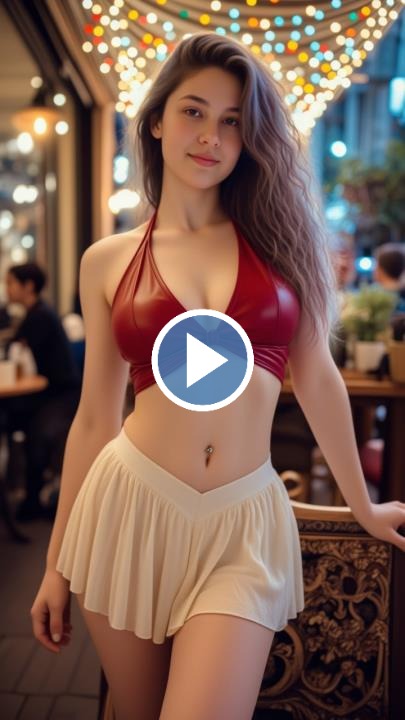
It started maybe four years ago. On his morning walks, Grandpa would stop at this hedge where a fluffy white dog always poked its head through. Same time, same spot. No barking, no leash, no human ever seen—just a quiet exchange of a biscuit through the leaves.
We thought it was cute. Harmless. Even the Frenchie eventually stopped growling at it.
But then this spring, Grandpa started bringing boiled chicken instead of treats. Said the dog was “working now.” When I asked what that meant, he just smiled and said, “It’s been patient enough.”
Yesterday, he came back from the walk holding something weird. A scrap of canvas folded around what looked like a fishing weight. Said the dog dropped it after taking the food.
Inside was a single torn piece of paper. Looked like it came from a ledger, but the writing wasn’t in pen—it was burned in, like scorched with a wire tip.
It read:
“SUNDAY. OPEN THE WALL WHERE THE IVY BREAKS.”
He didn’t explain it right away. Just tucked the note in his shirt pocket and sat down at the kitchen table like he was about to solve a riddle. I poured him a coffee and waited.
After a few minutes, he looked up and said, “You remember the stone wall behind the chapel?”
“Yeah,” I nodded. “The one with all the ivy and the bench?”
He smiled faintly. “That one. I think it’s time we went for a proper walk on Sunday.”
Sunday came. He wore his old hat, the brown one he never took on short walks. He carried a garden trowel, tucked under his arm like it was the most normal thing in the world. I followed, holding a flashlight I didn’t think we’d need—it was still noon.
The chapel was quiet, like always. It hadn’t been used in years, except for the odd wedding photo shoot. The wall behind it was covered in thick ivy, the kind that looked like it had been growing since the Victorian era.
“There,” he said, pointing. “See that gap? The way the ivy dips?”
I did. It wasn’t obvious unless you were looking for it, but the leaves thinned in one small spot, like something had pushed them aside over time.
He knelt, brushed away some dirt and vines, and started digging.
For a few minutes, there was nothing but the sound of metal on earth. Then a dull thud. Stone hitting something hollow. He pulled away more ivy, and there it was—an old metal panel embedded into the wall.
It looked like a maintenance hatch, maybe from before the chapel was decommissioned. Rusted over, but not completely. There was a tiny loop on one side, like a latch.
He tugged on it, and it opened with a slow, aching creak.
Behind it was a cavity. Just big enough to fit a small box, or maybe a few tools. But instead of tools, there was a wrapped bundle. Cloth, aged and yellow, tied with twine.
He took it out with a gentleness I hadn’t seen in him in years.
“What is it?” I whispered, though I wasn’t sure why I was whispering.
He didn’t answer right away. He sat down on the bench nearby, untied the bundle slowly, and unfolded the cloth.
Inside were several items. A black-and-white photo. A pressed rose. A letter, sealed with wax. And—oddest of all—a silver locket shaped like a tiny door.
He stared at the photo first. I leaned over. It was him. Younger. Maybe twenty. Standing beside a girl with short hair and sharp eyes. She had that look people used to call “plucky.” There was something about the way they stood—close, but not touching.
“She was called Miriam,” he said quietly. “I met her before your grandmother. Before the army. We used to meet here. Same bench. Same time. Every Sunday.”
I didn’t say anything. Just waited.
“She said if something ever happened, I’d know where to look.”
He held the locket in his hand, thumb running over its tiny door.
“But I never looked. Not after I came back and heard she’d moved away. I figured life… had moved on.”
He opened the letter next. His hands shook slightly. I tried not to read over his shoulder, but my eyes caught a few lines:
“If you’re reading this, then the dog has done its job. I always knew you’d feed it.”
The rest he read silently. Then he smiled—a strange mix of sadness and peace.
“She never moved,” he said. “She stayed. Waited. Wrote this in case we ever met again, even if it was like this.”
I was quiet, unsure of what to say. So I asked, “Why the dog? Why now?”
He looked at me with a shrug. “She must’ve trained it. Maybe she lived nearby. Maybe someone helped her after she passed. I don’t know. But that dog was no stray. It knew where to wait.”
We walked home in silence. He didn’t carry the bundle like a secret—he carried it like a memory he was finally allowed to hold again.
The dog didn’t show up the next morning. Or the one after that.
A week passed. Then two.
Grandpa still walked. Still checked the hedge. But he stopped bringing food.
Then one morning, he found something on the path where the dog used to sit. A ribbon. Blue, silk, tied around a small bell. The kind you’d find on a collar. It had no tag.
He picked it up, smiled, and said, “Goodbye, girl.”
We thought that was the end.
But three months later, something strange happened. I was cleaning the attic, looking for an old lamp, when I found a shoebox taped shut with painter’s tape. Labeled in Grandpa’s handwriting: “FOR YOU. IF I’M GONE.”
He’d passed away a few weeks before, in his sleep. Peaceful. Just never woke up.
I sat on the floor and opened the box.
Inside was a photo of him and Grandma, their wedding picture. Another photo of Miriam. A cassette tape. A tiny bag of dog treats. And a handwritten note.
It said:
“Life doesn’t give us second chances. But sometimes, it gives us quiet reminders of what mattered most. You saw the dog. You saw me remember. Keep feeding what’s patient.”
That night, I played the tape.
His voice crackled through. Soft. Steady.
“I don’t know who the dog belonged to. Maybe Miriam trained it. Maybe it was something more. But it reminded me that loyalty doesn’t need to bark. It just waits. And when you’re ready, it gives you the message.”
I cried. Harder than I expected.
The next morning, I went on his walk. Same time. Same hedge.
I brought a biscuit. Just in case.
Nothing.
But I kept going. Day after day. The Frenchie even started walking with me again.
Then one foggy Tuesday, I saw it. A head. Fluffy. White.
No sound. Just those same deep eyes.
I knelt, held out the treat. It took it gently.
And then, it dropped something.
A photo. New. Fresh. Not yellowed with age.
It was a picture of Grandpa. Sitting on the chapel bench. Smiling.
Next to him… was Miriam.
They looked younger somehow. Healthier. Free.
I blinked. Stared. Turned the photo over.
On the back, burned into the paper, were the words:
“HE FED ME. I TOOK HIM HOME.”
My legs gave out. I sat in the grass, holding the photo, heart thudding.
The dog was gone.
No paw prints. No rustling in the hedge.
I looked around, but it was like it had never been there.
I still don’t know what to make of it. Maybe the photo was planted. Maybe someone knew our story.
But deep down, I believe it.
Grandpa had fed the same dog through the same hedge for years.
And when the time was right, the dog took him where he belonged.
With someone he once loved. Someone who waited patiently behind ivy and time.
These days, I still walk that path. Still check the hedge.
I leave treats every Sunday, just in case there’s another message waiting.
And every so often, when the light’s just right and the wind moves the leaves, I think I see a shape. Small. White. Watching.
Maybe love doesn’t end.
Maybe loyalty leaves trails.
Maybe when we’re kind for no reason, when we show up every day even when no one’s watching—something out there takes note.
And maybe… just maybe… we all get taken home in the end.
So feed the quiet things.
Wait with the patient ones.
And never underestimate a dog who shows up at the same time, in the same place, with nothing but trust in its eyes.
If you felt something reading this, give it a like or share it with someone who needs a little reminder that love never truly leaves.






Leave a Reply